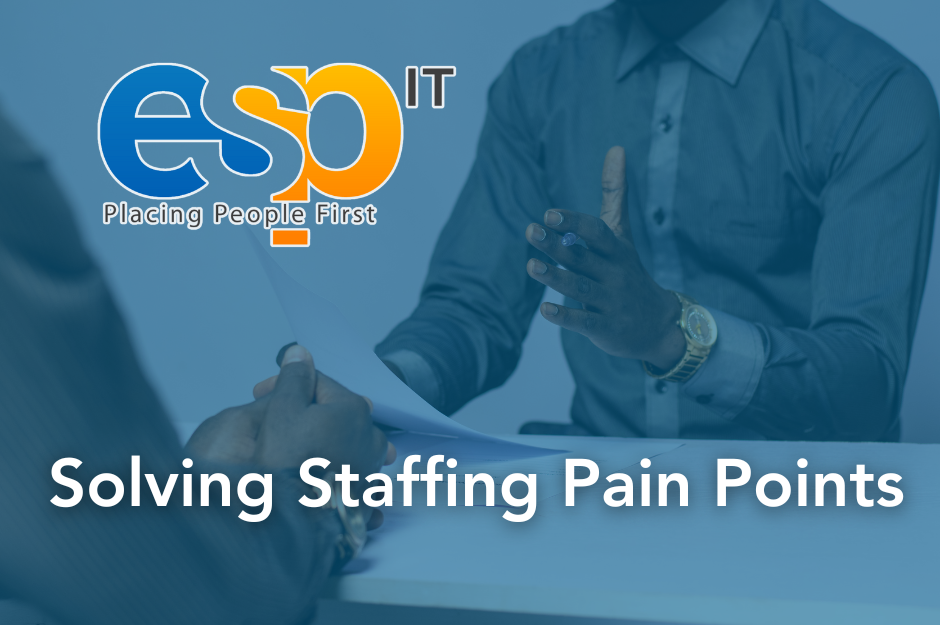 All techies hold at least a fundamental understanding of the Internet of Things. Since 2014 especially, the world of sensors, connected devices and increased Internet technologies has exploded—with researchers predicting 30 to 50 billion connected devices by the year 2020. But despite these climbing numbers, some IT pros continue to view the IoT as a cultural trend rather than a dynamic shift in the way their industry—and careers—will evolve in the coming years. Are you among those still hesitant to fully embrace the IoT? The following 10 tips for IT pros and businesses will help you better understand how the IoT can add value to your career.
All techies hold at least a fundamental understanding of the Internet of Things. Since 2014 especially, the world of sensors, connected devices and increased Internet technologies has exploded—with researchers predicting 30 to 50 billion connected devices by the year 2020. But despite these climbing numbers, some IT pros continue to view the IoT as a cultural trend rather than a dynamic shift in the way their industry—and careers—will evolve in the coming years. Are you among those still hesitant to fully embrace the IoT? The following 10 tips for IT pros and businesses will help you better understand how the IoT can add value to your career.
As an IT Pro
Your techie predecessors had a lot of work to do when the Internet was first introduced. Undoubtedly, they had to overcome a huge learning curve to become experts of the new technology, and maintain security in their careers. Likewise, you are part of a new technological revolution, and you’ll need to act accordingly. The Internet of Things is here to stay—and you’re going to want to be a part of it. Among other reasons, embracing the IoT will help you:
1. Stay at the top of your tech game
The IoT has already begun to effect transportation, health and exercise, and homes and businesses. It won’t be long before IoT gadgets, devices and systems find their way into your workplace, and others will look to you as the expert to assist with the integration of these new technologies. But how can you become an expert in technology that is still developing? Focus on your knowledge of the “big five disruptive technologies”: cloud, analytics, social, mobile and security. These are the technologies of today that are making the future of IoT possible.
Remember that the key to successful creation of new IoT technology is to always be thinking about value adding—something you, as a techie, are already an expert at doing. Approach new IoT inventions assuming they are practical rather than gimmicky and you’ll find success working with the technology.
2. Combine your skills and your passions with new IoT-inspired opportunities
Considering a career change? The IoT affords many new opportunities for techies, including the chance to combine your skills with specific areas of interest. For example, you might help to make the automated kitchen—such as those dreamed up in “Back to the Future II”—a reality. Or you could be the one to concept, design, program or project manage the next smart watch or fitness tracker. Smart cars, smart sports arenas, and smart gadgets for children are among the other emerging specialties of the IoT.
The key to making the switch: focus on agile. The quick thinking and adaptation skills that characterize agile methodology are key to success in the constantly changing world of IoT. Whether you are a mobile architect, software engineer, project manager, or another specialty of IT pro, with agile expertise you’ll find there are many opportunities for you to break into IoT innovation.
3. Ditch consulting struggles
IT consultants are experts at juggling projects, staying up-to-date on the latest tech developments, and adapting to new environments. These skills make them among the most prepared for the IoT revolution. But their qualifications aren’t the only reason IT consultants should celebrate. The connectivity of the IoT is exactly the sort of asset that can help IT consultants save time and money as they manage their busy schedules.
Picture an Amazon Echo geared specifically toward consulting professionals. How much easier might it be to juggle your multiple contacts, track your working hours, assemble your time sheets and complete the many other tasks that can take up time and distract you from the heart of your work? With your own personal sidekick, you can spend more time completing projects and exploring new tech skills, and less time on the mundane but necessary facets of consulting.
4. Be in two places at once
Consultants aren’t the only ones who will benefit from a connective world. Virtually everyone can appreciate the advantages of smart technology. But for IT pros in particular, whose daily work already involves the use of cloud-based computing and facets of cyber security, the increased ability afforded by the IoT to monitor and interact with devices remotely could have a major impact.
And don’t overlook the advantages the IoT could have on your personal life. In the words of SmartThings CEO Alex Hawkinson, “Wouldn’t it be smart if your bed knew when you got up so that it could turn on the lights, open the shades and start the coffee pot?”
5. Harness the power of a photographic memory
The ultimate goal of the IoT is to simplify life—for everyone. The combination of sensors, systems and shared syntax will lead to a world where things happen automatically, without the need for you to write them down or even think about them at all. Think smart lights, thermostats, or the new garbage can that tracks your waste and compiles a grocery list for you to replace those items.
Get ready for a world that anticipates your needs before you do. We’re no longer looking to the Jetsons for advice on how to work with robots—we’re preparing for the whole Jetsons world to become a reality. The sooner you embrace this, the more productive and savvy you can become.
As a Tech Employer
For many businesses, the IoT has created more challenges than solutions. The greatest of these challenges: deciding how to effectively use all of the big data collected by IoT devices. But there are many ways in addition to data collection that the IoT benefits employers. If you are among the 44 percent of people who don’t use smart devices in the workplace because they don’t see the benefits, consider how embracing the IoT can help you to:
1. Spearhead an industrial evolution
The IoT is completely reinventing the way people market and consume products and services. The result is a new industrial revolution—or, as some like to call it, an evolution. In an effort to keep up with the changing times, 50 percent of all major businesses and systems are expected to have an Internet of Things-centric element by 2020, and you’re going to want to be a part of the movement.
Think of this as a key opportunity to make important shifts in your business process—leveraging new IoT data and analytics to disrupt existing business structures and make way for the future. By making some adjustments now using the tools and information currently available, you’ll be better prepared for a future of smart glasses and other gadgets that will further revolutionize the workplace.
2. Become a productivity mogul
One of the greatest assets of the IoT is sure to be its impact on productivity in the workplace. In fact, 75 percent of manufacturers believe this to be true, and are planning to increase their use of smart devices. Because the IoT will theoretically simplify processes through automation, some of the more mundane human functions of the workplace may be rendered obsolete—leaving employees more time to focus on the technical aspects of their work.
But that’s not all. By incorporating more IoT technologies into your workplace, you’ll have the capability to collect important data on your team’s working habits and individual needs, which in turn can help you to boost productivity and workplace satisfaction. Other elements—including efficiency savings and office design tips—can also be tracked with IoT data to help improve your workplace overall.
3. Ease communication with remote workers
What would it look like if you could more easily track your remote IT employees and consultants’ hours? Though the idea of being connected in ways that would allow you to see what time your team logged into work, when they were idle, and what time they logged out may sound a little “big brother”-ish, in reality such capabilities are an opportunity to help you and your team stay accountable without the need for frequent check-ins.
As remote work continues to grow in popularity and teams become more dispersed throughout different time zones, the IoT could become the bridge that keeps everyone connected and on track—saving you the headache of coordinating all-team meetings or trying to track down individual IT pros for status updates.
4. Take “best practices” to a whole new level
The IoT could play a major role in helping you to detect cracks in your business model or tech systems before troublesome situations arise. From sensors that can predict when a system might fail to smart devices that track energy waste and lost productivity, increasing connectivity in your workplace could help you ensure things are running smoothly—and by extension lead to increased confidence in your business.
In addition, the data collecting benefits of the IoT will help your business to better market to and serve your surrounding community—identifying the needs of your company’s marketplace and helping you interpret and apply solutions to your business model that will make you more effective and improve your reputation.
5. Impact your bottom line
Whether by helping you save money or generate greater revenue, the IoT could have a major impact on your bottom line. As stated above, streamlining processes through greater connectivity can increase your team’s productivity—in turn, leading to increased production and cash flow. Research suggests that the economic impact of the IoT by 2025 will range from $3.9–11 trillion annually.
Part of this impact will come from the use and sale of IoT collected data, which may be sold by big data companies to retailers and other businesses that could use the information to increase sales. But the opportunities don’t stop there. By collecting their own data using smart sensors, retailers could market sales, coupons, and other promotions to customers at calculated moments (say, sending a 50 percent off coupon to a customer who has been looking at a certain product for over one minute). As a consumer, be prepared to get savvier. As an IT manager, consider the ways this technology could be used to benefit your own team goals.
Why Embrace the Internet of Things?
Being prepared for the IoT doesn’t mean you’ll be instantly jumping into full-connectivity. Gartner predicts the Internet of Things won’t fully mature for another five to 10 years. But in that time there will continue to be many IoT developments—and as an IT pro and/or business leader, you’ll want to remain aware of their impact on your career. At times keeping up to date on the latest IoT trends may seem tedious, but by keeping in mind the many benefits that the future connected world could afford your career, you’ll stay motivated to assert yourself as an expert of this innovative new technology.
Want to learn more about IoT best practices?
ESP IN THE NEWS



